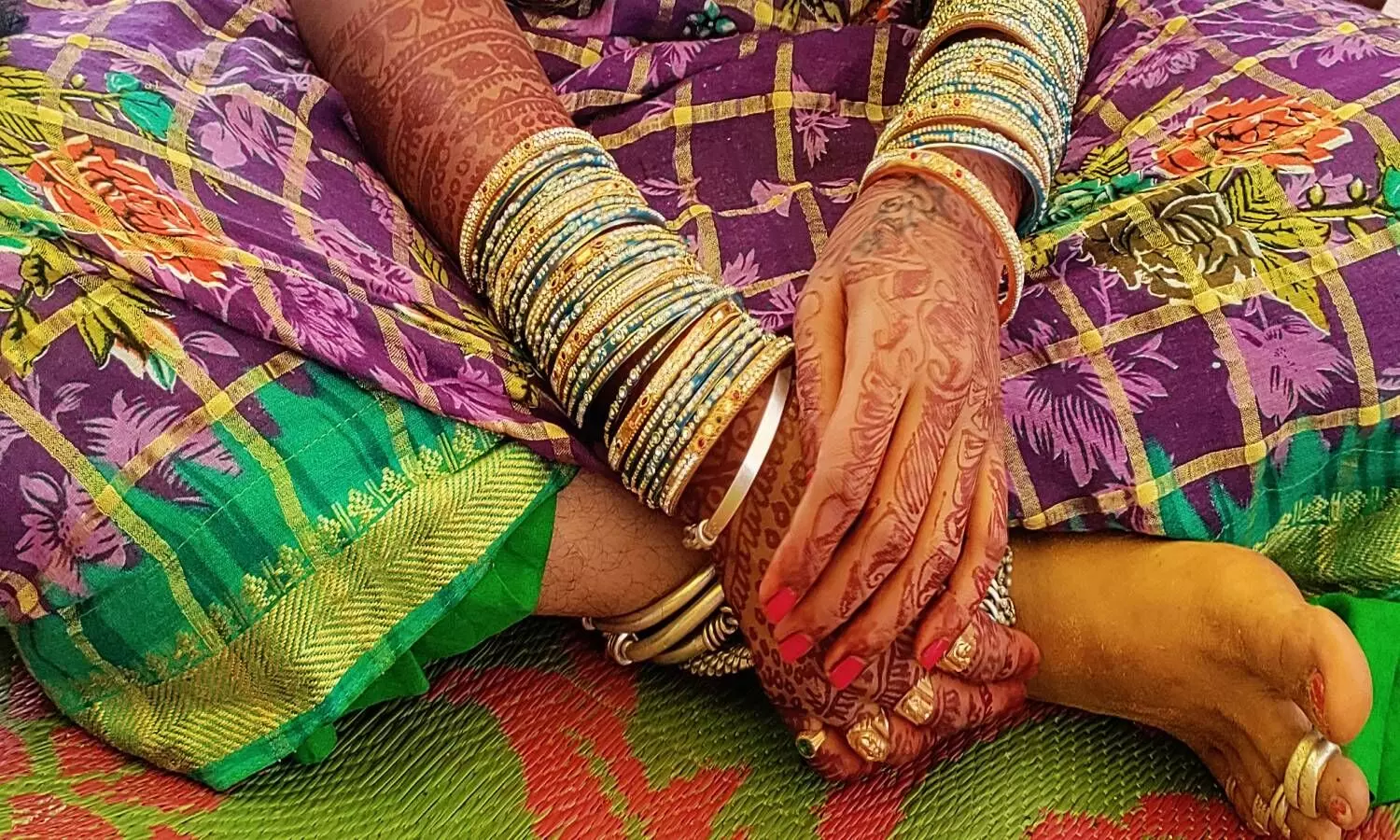Medaram Jatara: How faith drives transgender community in the abode of Goddess
"We celebrate Jatara like any other person. We come to worship the mother-daughter Goddess. We do visit again after our wish is fulfilled,"
By Sumit Jha
Mulugu: It's early morning at Medaram. The first light of the day is yet to arrive. Thousands of devotees who have come to worship Sammakka-Sarakka biannual Jatara were cleaning their tents, folding the blankets, washing their faces, and doing the routine work. These tents are on the sidewalk of the main road which leads to the Sammakka-Sarakka temple. They were getting ready for the day's processions.
A group of six transpersons from a nearby town Tadvai has also set up a tent on the sidewalk. "We came on Tuesday, a day before the Jatara started. We are going back after Jatara on Sunday. The belief in the deity brings us again and again," said Srivalli, 28, a transwoman.
The transgender group is the focus of every passerby who has come for the Jatara. "We celebrate Jatara like any other person. We come to worship the mother-daughter Goddess. We do visit again after our wish is fulfilled," said Srivalli.
Srivalli has come to worship the Sammakka-Sarakka after her sex-change operation. "Last time, I worshipped Sammakka-Sarakka for a sex-change operation. I got the operation done two years ago and now I am visiting the goddesses again," said Srivalli.
For the transgender group, life is like any other person's. The struggle to live in society makes them feel equal at various phases of life. "From rich to poor and from lower to upper caste, everyone is equal here. We take bath in Jampanna Vaagu (river) and walk to the temple barefoot. Everyone here is equal," said Viju, another transwoman.
Sammakka Saralamma Jatara, the age-old festival commemorates the fight of a mother and daughter- Samakka and Saralamma-- against the unjust law made by rulers during Kakatiya rule in the 12th Century.
Legend says the two women reportedly died during their fight, and the Koya community constructed this temple in their memory. Hence, the festival has no Brahmanical or Vedic influence.
According to a tribal story, about 6-7 centuries ago, some tribal leaders, who had gone hunting, found a newborn girl (Sammakka) emitting enormous light while playing amidst tigers. She was taken to their habitation, and the head of the tribe adopted her. She was later made chief and became the savior of the tribals. She was married to Pagididda Raju, the tribal chief of the Koyas.
She was blessed with 2 daughters, Sarakka and Nagulamma, and a son Jampanna. When King Prataprudra of the Kakatiyas imposed taxes on the Koya Tribe, its chief was unable to pay. As a result, Prataprudra declared war on the Koya Tribe. All the tribal people became warriors. Pagididda Raju was killed in the battle.
Sammakka entered the battlefield along with her daughter, Saralamma, her son, Jampanna, her son-in-law Govinda Raju. Saralamma and Jampanna died in battle. They fell into a Vaagu (stream) and later the whole river turned red. It has been named "Jampanna Vaagu".
Sammakka had gone to a hill `Chilakala Gutta. All alone, she manifested into a vermilion casket. Tribe and devotees believe that Sammakka and Saralamma were manifestations of Adiparashakti (great goddesses) and they have been protecting them.
The transgender group is waiting for Friday. It is the day when Adiparashakti is worshipped. "We will sacrifice a goat which we have brought from Tadvai. We are sacrificing it because our wishes have been fulfilled," said Viju while making a mud pile near the tents.
For the transgender community, it is time to celebrate. A sea of people has descended on Medaram to pay respect to Sammakka Saralamma.